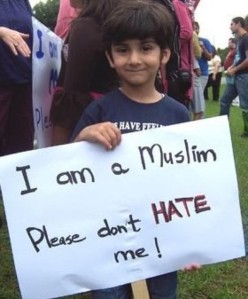In the years 1957 to 1962, the Near East Christian Council published a sequence of Study Papers under the title OPERATION REACH, of which there were five series, covering some fifty different, and basic, topics in Islam. The whole was intended as a venture in Christian understanding of Islamic belief and practice and as an aid to intelligent, expressive Christian ministry among Muslim neighbors.
A series from OPERATION REACH under the heading “Emmaus Furlongs” are already on this site (see link above). Starting today I will be posting a new set of studies both here and in the page dedicated to the ground breaking work of Dr. Cragg. I encourage you not only to read them, but to pass them on as his insight remains as valuable today (perhaps even more valuable given the current state of affairs) as it was at the time he wrote these pieces.
John Hubers, PhD
——————
 INTRODUCTION
INTRODUCTION
The purpose of these studies, which it is hoped to continue from September, 1957 to June, 1958, is to provide material for intellectual and spiritual activity in the Churches and to serve them in their attitudes and duties towards Islam today. There is a very real relationship between a growing mind in Christ and a growing expressiveness towards Muslims. If, in the words of Isaiah liv. 2, we are to lengthen our cords, we must strengthen our stakes. Two warnings are perhaps in order:
(1) The studies do not hope to be comprehensive. A glance at the titles will show that many serious themes in Islam find no mention. Some of these may perhaps have their place in another series to follow. The purpose has been to keep before you a few representative issues, as a sample of what must be done and as an occasion for your private study or general discussion.
(2) Do not expect the study to be always relevant to your actual situation or to your next encounter. We cannot expect pinpointed illumination of all our difficulties. What we need is to seek an all-round sense of Islam, out of which fullness, explanation and communication can arise. We are not aiming at a blueprint of methods but at an imprint of awareness and knowledge.
Your comments, questions and advice will always be welcomed. How fond St. Paul was of the Greek prefix for “Fellow-“: “fellow-traveller, fellow-servant, fellow-citizen, fellow-sufferer.” That is what we are — fellows, and this Operation Reach is the theme of our fellowship.
THE MEANING OF RAMADAN
May, 1957
Our theme, like several of its predecessors, is ambitious. For -who shall say what is the meaning of Ramadan? Shall we ask the aspirant after the ultimate degree of fasting in which the fast is broken by any thoughts that concern other than God, His judgement and the world under God and judgement? Or shall we think in terms of the apprehensive concern of an ignorant woman who fears for an infraction of the fast because she cannot control a physical function which is traditionally within the muftirat, or things that invalidate Ramadan? For both have their place in the totality of this inclusive fourth pillar of religion in Islam.
Shall we follow the many traditions that hallow this time as a veritable fast from every kind of inward evil-—from lust, from intemperance of word and deed and desire, from slander, gossip and envy, from ill-temper and arrogance? Or shall we assess the meaning of the fast in the rather languid, easily provoked, half sulky, half apathetic folk who wait in the shade of the evening sun for the gun that brings the food and the Salat? For Ramadan in truth ‘means’ all these, according to how we elect to regard it. Is it essentially the body’s endurance or the spirit’s supremacy: the community in ritual conformity or the soul in disciplined command.
The questions are, perhaps, unimaginative, since, of course, the answer must be both. For in this human world of flesh and blood, of body and spirit, there is no spiritual aspiration that does not require a physical demand. The perversions or depravities of the external and the bodily—the superstitious or superficial forms—are inseparable in this world from the possibility of the valid and ennobling. The very means to man’s expression of victory over his lower self can subtly become the victims of it, so that a fast becomes no more than an occasion of hunger, and the discipline that shaped it an irksomeness generating pride in the observing or weariness in the suffering. But such attitudes do not belong to a valid Ramadan. Tested by its intention, they are features of the dangers from which no spiritual objective can be naturally immune and by which it may be overcome.
The Meaning of Ramadan May 1957
 ~ In the name of God, the Most Merciful, the Most Compassionate ~
~ In the name of God, the Most Merciful, the Most Compassionate ~







